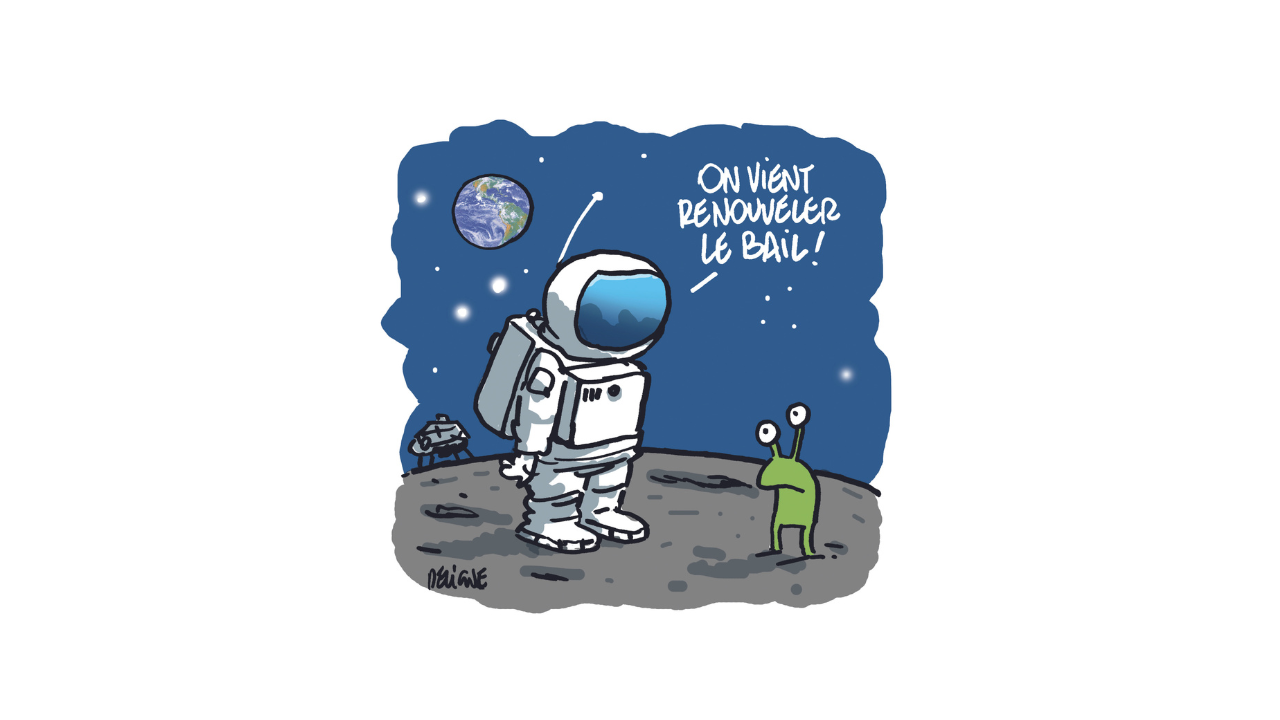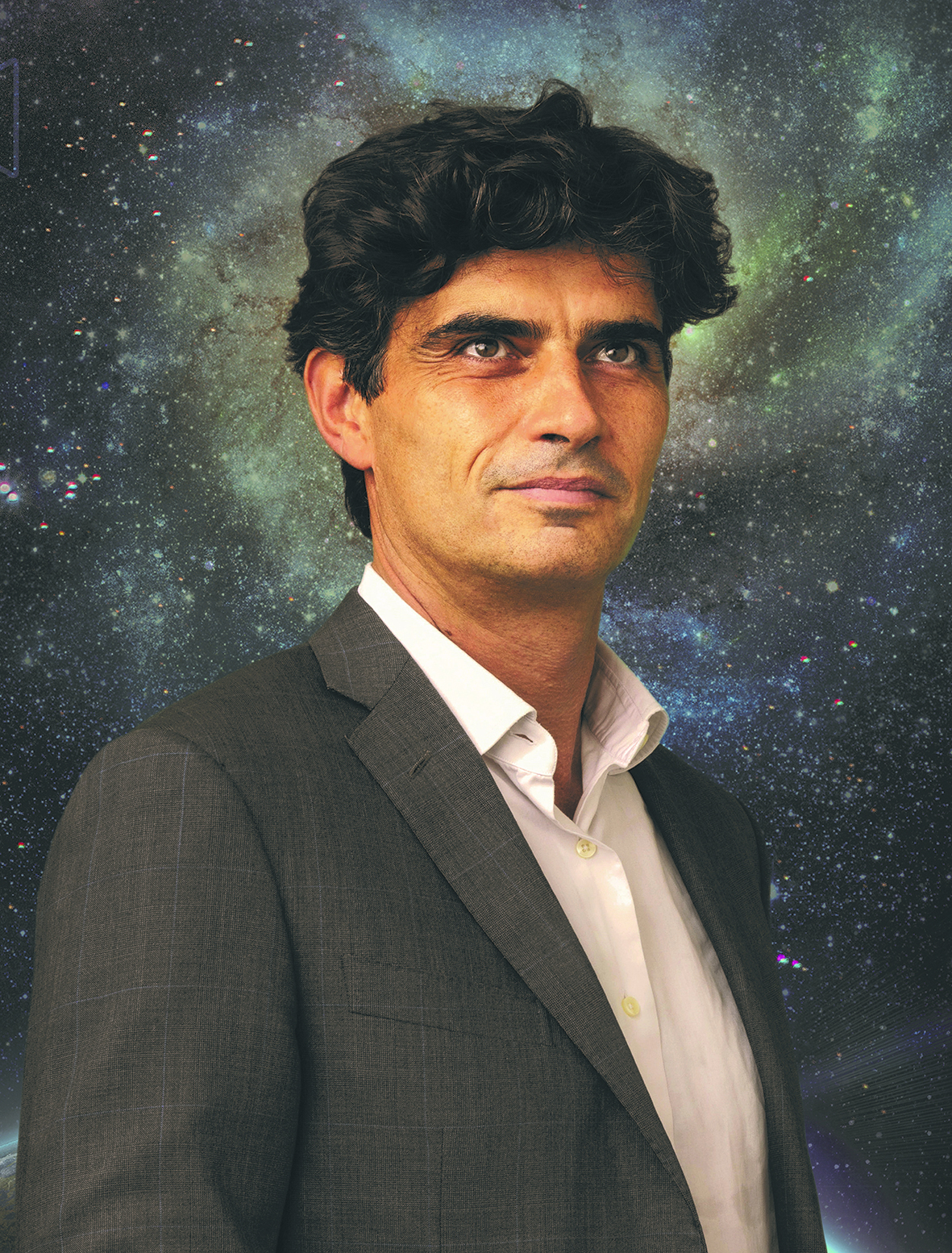For / Against : sending man to the moon

A few days after the successful launch of the Orion spacecraft to the Moon, NASA announced its desire to establish a human presence on the planet within ten years.
FOR
“A beneficial adventure for humanity and for the Earth”
Luca Boccaletto (E.16), Director of the Evaluation and Quality Department of the European Space Agency (ESA)
With a degree in Aerospace Engineering from the University of Pisa (in 1999), a PhD from Aix-Marseille University (in 2011) and an EMBA from HEC Paris (in 2016), Luca Boccaletto has been working in the European space industry since the year 2000. He joined ESA in 2008 where he held several positions for the Ariane and Vega programs, before taking over as head of the evaluation and quality department in 2017.

First of all, the survival of humanity is at stake. Let us recall that an asteroid destroyed about 80% of life on Earth sixty-six million years ago. Scientists believe that such an event has a significant possibility of recurring. To protect ourselves from it, we must plant humanity on other planets, starting with our solar system. In the short term, it is not possible to go directly to Mars, a planet that can accommodate us but is too far away. The first step is to develop infrastructures on the Moon. Our presence on the Moon will promote the progress of science and the development of new advanced technologies. Research that is impossible to carry out in a terrestrial environment is already being conducted on the International Space Station and has important spin-offs in human biology, medicine, etc. A lunar base will also allow us to intensify these activities and accelerate discoveries. The soil of our satellite also contains interesting mineral and chemical resources. In September, China announced the discovery of a new mineral from a lunar soil sample that could be used to produce 100% clean energy. So we also have an interest in returning to the Moon to protect our Earth. From a geostrategic point of view, there is a legal vacuum since there are still no global regulations governing the use of lunar resources by humans. And in a few years, the United States and China will regain a foothold on the Moon. Europe cannot ignore this movement, nor refuse to participate in it, or else it will find itself definitively out of the game.
A space exploration in the direction of history
The arguments against returning to the Moon seem irrational to me. Those who point out the cost of a return to the Moon (a few tens of billions of dollars) would do better to denounce the thousands of billions spent annually in the military industry, which aims at destroying human beings. This desire for lunar exploration is not exceptional in a global historical perspective. From time immemorial, mankind has sought to explore its immediate environment. Five hundred years ago, European navigators set out to discover the American continent. The return to the Moon is part of this continuity.
AGAINST
« the emergency is elsewhere ».
Amicie Monclar (H.16), CEO of Zephalto
A graduate of HEC Paris (2016) with a passion for the arts, literature and philosophy, Amicie Monclar joined Zephalto, an aeronautics company specializing in low-carbon stratospheric travel supported by CNES and Airbus Développement, in 2020. She was appointed CEO of the company in August 2021.

Going back to the Moon is not the priority at a time when our planet is burning. We need to focus our energies on the emergency of the moment: fighting global warming and reducing our carbon footprint. The future of humanity in the universe is a question on a scale of millions of years. We have only a few months to avoid warming above 2o C and slow mass extinction. The best engineers should be working to find solutions to keep countries like India and Pakistan habitable to avoid mass deaths and large-scale migration waves. The human desire to conquer and dominate the world through technology is part of a philosophy that seeks to go further and further beyond the limits, while we are in a world of finite and depleting resources. This philosophy, fueled by the fierce competition between nations, sends us straight to the wall.
The dangerous delirium of an elite
Already, privileged tourists are traveling to Antarctica. And, in the same vein, billionaires will soon go to the Moon to impress their peers. It is dangerous for the elites to take this direction and drag society in their wake. Wanting to put every corner of the planet – and now the Moon – at our disposal in a consumerist frenzy does not make us happier, on the contrary, because we lose our capacity for wonder, as the German sociologist and philosopher Hartmut Rosa describes in his book Rendre le monde indisponible [La Découverte, 2020, ed.] Behind the return to the Moon lies Elon Musk’s dream of sending a million men to Mars by 2060. But such a trip is not sustainable by the ozone layer: it would destroy our planet. In my opinion, this project should be purely and simply prohibited. Let’s allocate the consumption of fossil fuels and the emission of greenhouse gases to necessary and urgent projects. If it is about getting excellent teams to work on exciting and innovative initiatives, the challenge of sustainability is enough to motivate them. Once we have reviewed our growth model, solved the planet’s problems, then, yes, we can worry about going back to the Moon, with clean rockets. But for the moment, we are very far from it!
Published by Marianne Gérard

